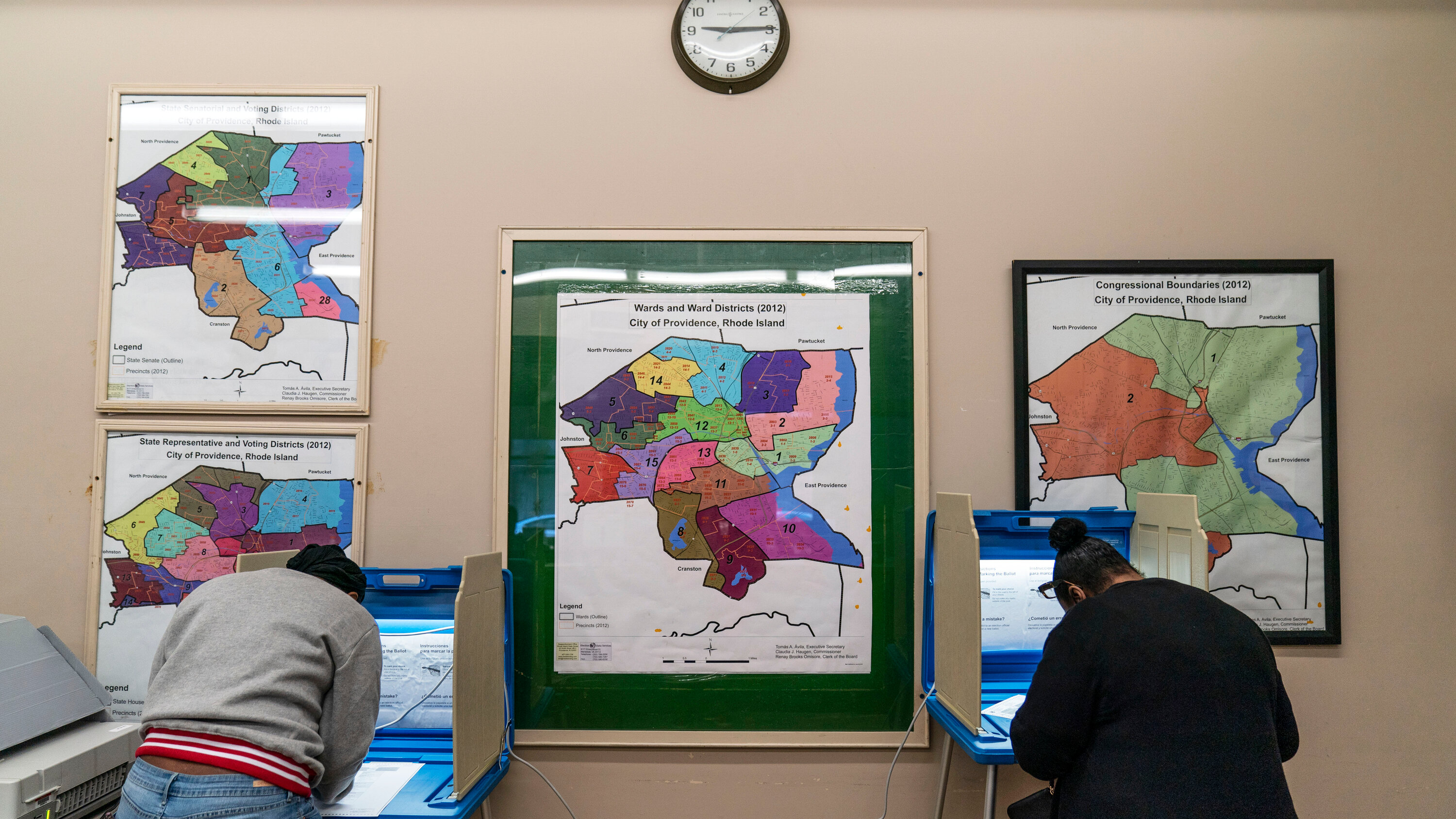As the dust settles on another midterm election, several winners have emerged from this year’s remarkably fluid congressional contests. The Democrats had a better night than almost any pundits expected, expanding their Senate majority while limiting their losses in the House to give Republicans only a single-digit majority. Anti-Trump Republicans also notched some serious wins, with Governor Ron DeSantis’ decisive margin in Florida and the upset of Democratic campaign chair Sean Patrick Maloney in his House race in New York’s 17th district. However, the biggest winner of the night seems to have been American democracy itself, as results point toward the gradual restoration of many political norms that had been tested in 2016 and the years since, including free and fair elections, the peaceful transition of power, the importance of candidate quality, and split-ticket voting.
Some of the most consequential results occurred at the state level, where election administration in competitive states remained in the hands of pro-democracy candidates. In Michigan, a key swing state that Donald Trump carried in 2016 and Joe Biden won in 2020, Democrats retained the governor’s office and flipped the state senate, giving them unified control over the state’s government for the first time since 1983.
Democrats also achieved unified control over state governments in Minnesota, Massachusetts, and Maryland, and made significant state legislative gains in Pennsylvania and New Hampshire. These state-level successes against many election-denying Republican candidates mark an important victory for American democracy. The Democratic winners, who have positioned themselves on the side of free and fair elections, will look to continue to promote voting rights, fair legislative maps, and the protection of American democracy from the bottom up.
In a rebuke of extremism, candidates aligned with former President Donald Trump lost decisively, while more traditional Republican candidates secured big wins. The incumbent Republican governors of Vermont and New Hampshire, both outspoken critics of Trump, won reelection by double-digit margins, while Trump-backed candidates lost in Arizona, Pennsylvania, and Colorado. These results suggest a significant decline in the former President’s influence over the party, which will likely continue as strategists try to distance themselves from Trump’s failed message in the 2022 election. A Republican party free of Trump is both good for Republicans, who Trump has now led to defeat in (arguably) three consecutive elections, and good for American democracy, which can again prosper with the competition of two healthy opposition parties.
Another encouraging sign from the 2022 elections was a repudiation of election denialism by even some of the most extreme Republicans running. Only one major race, the election for Arizona governor, saw any claims of fraud, and the legal challenges brought on there are unlikely to result in any disruption. Even Doug Mastriano, the Republican gubernatorial nominee in Pennsylvania who himself attended the January 6th insurrection, conceded his race shortly after it was called. Across the country, concerns surrounding potential challenges to the democratic process largely failed to materialize, as the norm of the peaceful transfer of power has seemingly survived.
There has also been a re-emergence of candidate quality as an important political factor, something that was largely supplanted by partisanship during the past two elections with Trump on the ballot. In the absence of a unified partisan shift nationally, the results in many states were driven by strong performances by popular candidates at the top of the ticket, even in some unexpected locations.
In New York, for example, Republicans had a great night despite the state’s decidedly Democratic lean because their candidate for governor, Lee Zeldin, ran a strong campaign and likely boosted turnout for down-ballot candidates across the state. Similarly, in Ohio, Democrat Tim Ryan ran a strong campaign for Senate that ultimately failed but likely propelled several of his state’s House candidates to victory. These results suggest that at the top of the ticket, voters cared more about the quality of candidates than about their party, a positive sign that upsets conventional wisdom about state partisanship.
Finally, ticket-splitting is another healthy democratic norm that appeared to survive in 2022, particularly in New England, where Republican Governors Phil Murphy and Chris Sununu cruised to reelection in Vermont and New Hampshire, respectively, despite decisive Democratic wins for Senate candidates Peter Welch and Maggie Hassan on the same ballot.
Elsewhere in New England, including in Rhode Island, Democratic dominance of state and federal offices continued. The Ocean State re-elected its Democratic governor, Dan McKee, and sent a Democrat to the House in what was initially looking like one of the more competitive House races in the country. The surprising battleground, Rhode Island’s second congressional district, chose Democrat Seth Magaziner over Republican Allan Fung by a margin of about four points, dashing New England Republicans’ hopes of making gains in the Democratic stronghold. In the end, Democrats held every House seat in New England and will continue to control every Senate seat but one.
With the national balance of power now split between a Republican House and a Democratic Senate, both by very narrow margins, it remains to be seen what kind of legislative victories either party will be able to achieve in the coming session. In the Senate, Democrats will no doubt continue to confirm President Biden’s judicial nominations in an effort to moderate the federal judiciary after four years of Trump’s appointments. In the House, Republican leadership looks likely to pursue several investigations of the current administration, ranging from the chaotic withdrawal from Afghanistan in 2021 to controversy surrounding the President’s son, Hunter Biden. But it is the hope of many voters that the parties can put aside their differences in divided government and achieve bipartisan progress on the issues that are affecting everyday Americans. If this happens, it will mark one of the clearest signs yet of the strong recovery of American democracy.
